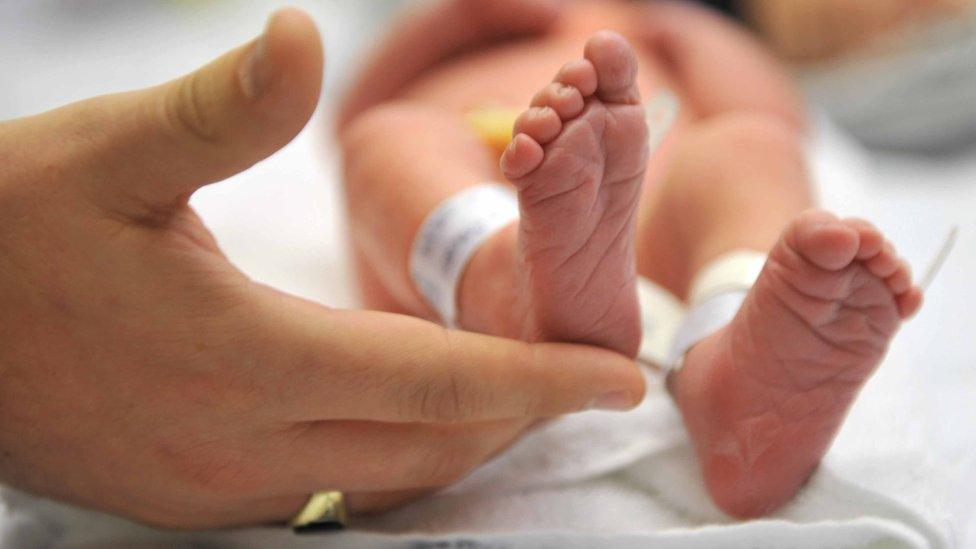Parenting: Rural mums offered help with mental health
- Published
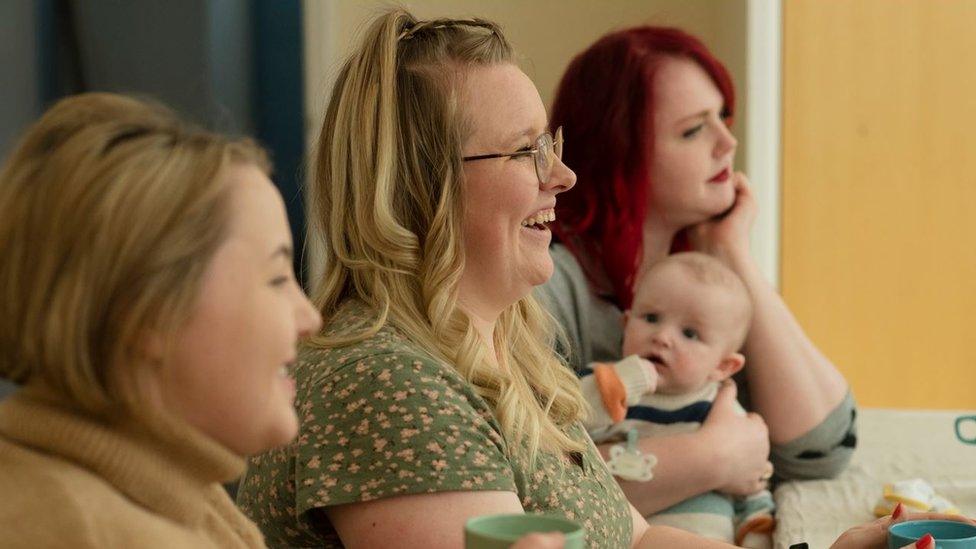
Outside of the course there are peer support groups, exercise classes and dinners
Motherhood is often thought to be one of life's best experiences, but many mums find it lonely.
When Bethanie Casey had her babies she couldn't understand why she was feeling so low.
Living in Norton, Powys, Ms Casey experienced residual postnatal depression after both pregnancies.
She is one of a number of women who benefitted from an intervention service, delivered by the charity Mind, for mums with mental health challenges.
Warning: article contains references to suicide
Ms Casey, 28, said she "had this realisation one day: Why did I feel so down? Why was I so tired? Why did I feel so alone?"
She had "no family or friends around" and her partner was working 65-hour weeks.
A health visitor suggested she enrol in a course called Mums Matter.
It was founded by Tracy Lewis, who works for Mind, after she spotted a major need to help mothers with isolation and loneliness in rural Wales.
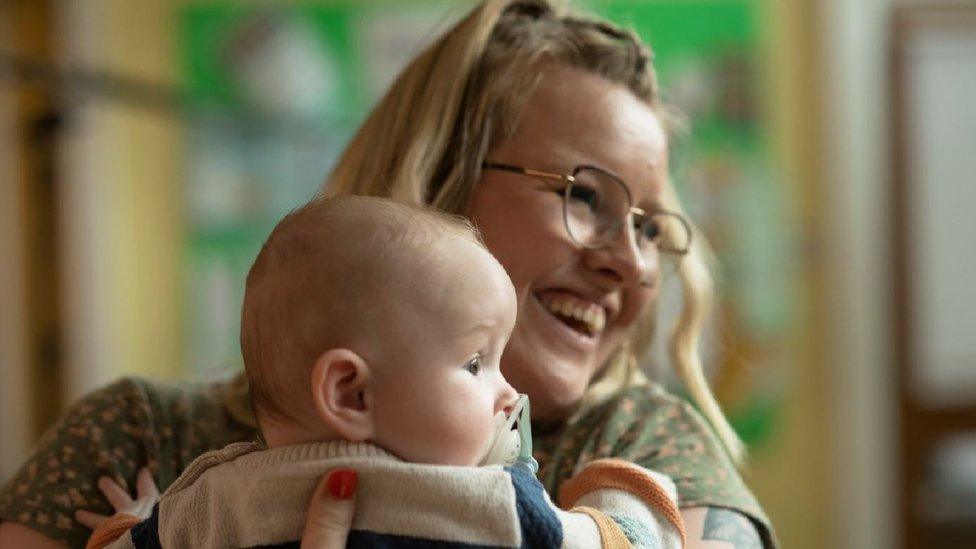
Bethanie says "no-one judged" her for saying what she felt at the group
The course lasts for eight weeks and each week focuses on a different subject.
Ms Lewis said: "I think the really hard-hitting [week] is usually three, which is the unhelpful thinking patterns and when we look at strategies to why they have got unhelpful thinking, how we can break the unhelpful thinking."
The charity said the project has helped more than 400 mums, who can either be self-referred or referred by a healthcare professional, if they are over 18.
Alongside the course, several of the mums have volunteered to create a peer support group.
"I just felt so safe and embraced there, and it was a place to honestly express how I was feeling - the loneliness, the guilt, the intrusive thoughts - and no one judged me," Ms Casey said.
She said her "life has changed" because she realised she was not alone.
"Before, I was stuck in those negative patterns and cycles, and I couldn't get out of the hole. Now I've got somebody giving me a ladder, getting me right out."
Mum-of-three Becca Hughes, 29, from Builth Wells, has also taken part in the course.
Ms Hughes had a baby with a new partner who then died unexpectedly.
She said raising her children alone while grieving "put a huge strain on my mental state".
"Life got so difficult in the following years that I attempted to take my own life," she said.
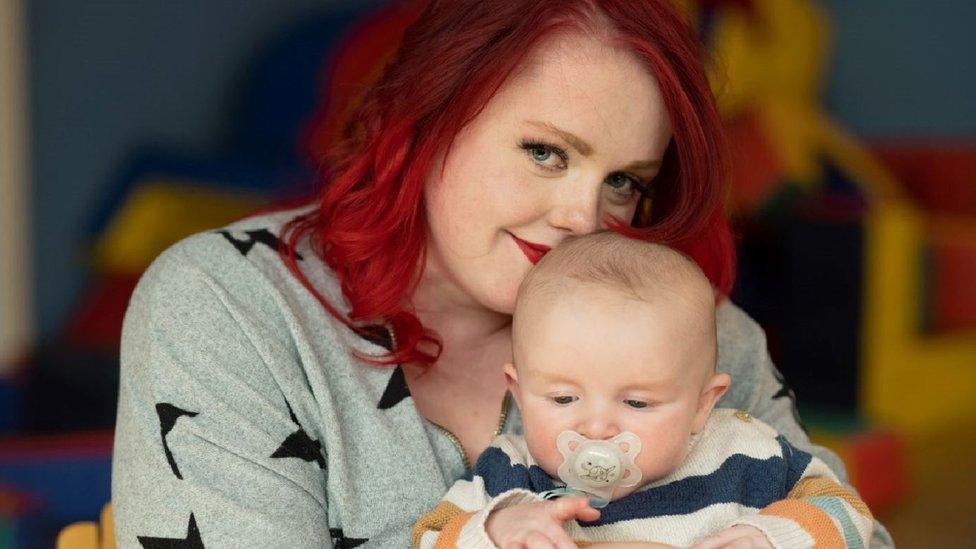
Becca has become a volunteer to help other mums like her
Ms Hughes, who has attention deficit hyperactivity disorder (ADHD) and autism, said she found "some social situations quite difficult" but felt like she "fitted in" with the group in ways she did not with other mother and baby groups.
"I used to think I was mad for thinking this thing, and then I'd go there and someone would say it and I was like 'oh my God I'm not mad'," she said.
"It's changed my life," she added, particularly the week where she learnt to "deal with negative thoughts and handling pressures".
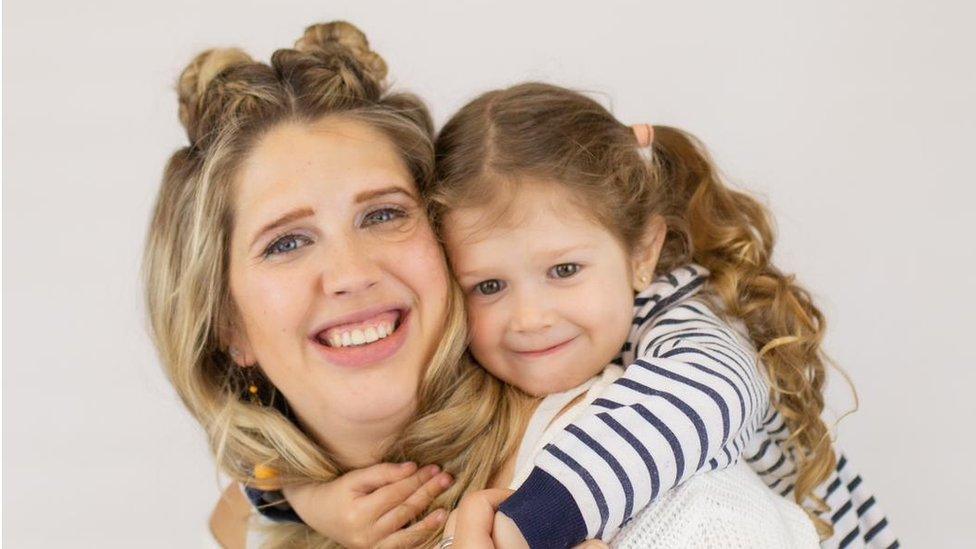
Wilna says she is able to understand her feelings better after doing the Mums Matter course
Wilna Evans, 31, moved to Wales from South Africa with her family as a child.
She later met and married her husband, Geraint, and stayed behind with him when the rest of her family returned to South Africa in 2015.
"Being a farmer's wife can be lonely at the best of times, let alone when your entire family gets on a plane back to South Africa. I felt as though I had no-one," Mrs Evans said.
"My husband single-handedly looks after 2,000 sheep and 100 cattle. It's a seven-day-a-week job, so when I had my first daughter in 2019, I had absolutely no help.
"I had a lot of anger and frustration built up, I didn't know why I was getting really angry at everything."
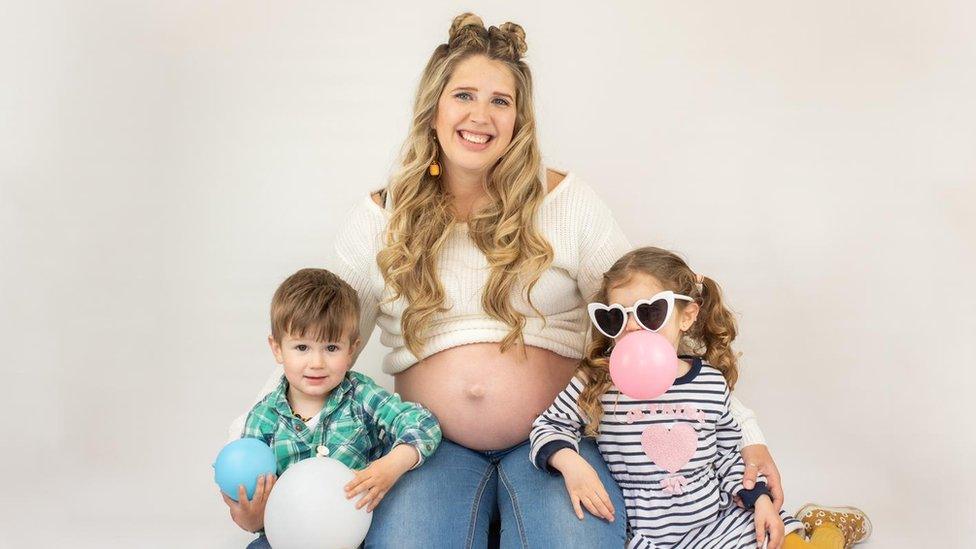
Wilna Evans says the family dynamic works well now she understands how to "set boundaries" and give herself time away from the children
Mrs Evans said she was "surviving not thriving" and felt "incredibly lonely".
She enrolled on the course, which she said helped her to figure out how to manage motherhood and maintain her own identity.
Now the children stay with their dad on the farm twice a week, while she takes time to herself and works in the community farm shop.
"I feel part of a community now, like-minded women, we can all ring each other whenever we want," she said.
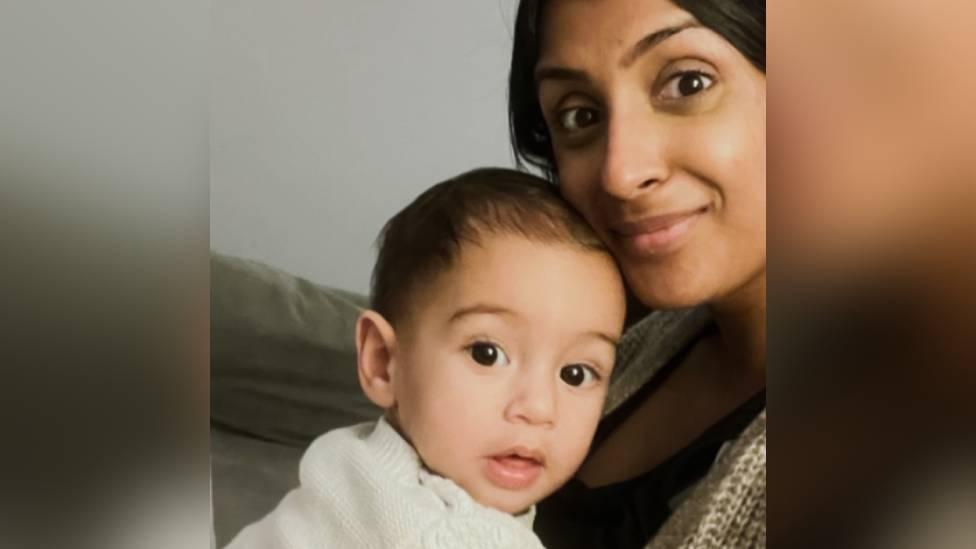
Namrata Bhardwa says the group is a space to talk about the "cultural issues" she experienced
Namrata Bhardwa, 29, also found living in rural Wales difficult with a new baby.
She grew up in Coventry, which had "really strong Asian communities and influence", before moving to to Rhayader, Powys, where "the nearest temple is two hours away".
She took part in the project and found it helped her to "explore all kinds of often-taboo issues relating to motherhood, from mental health to postnatal sex, in a completely non-judgmental and often light-hearted way".
Simon Jones from Mind Cymru said as many as one in four mums experience mental health challenges during pregnancy.
He said a recent report from the Maternal Mental Health Alliance showed all seven Welsh health boards had increased their budgets for perinatal mental health services.
"Clearly good work is underway, but there are still issues around budget underspend and standards not being met, and more work for health boards to do to make sure that every woman in Wales has the same level of access to high quality, accessible care," he said.
Deputy Minister for Mental Health and Wellbeing Lynne Neagle said having a baby "can be a challenging time mentally and physically" but said the project was "a fantastic example" of early intervention.

For details of organisations which offer advice and support, go to BBC Action Line.
- Published6 March 2023
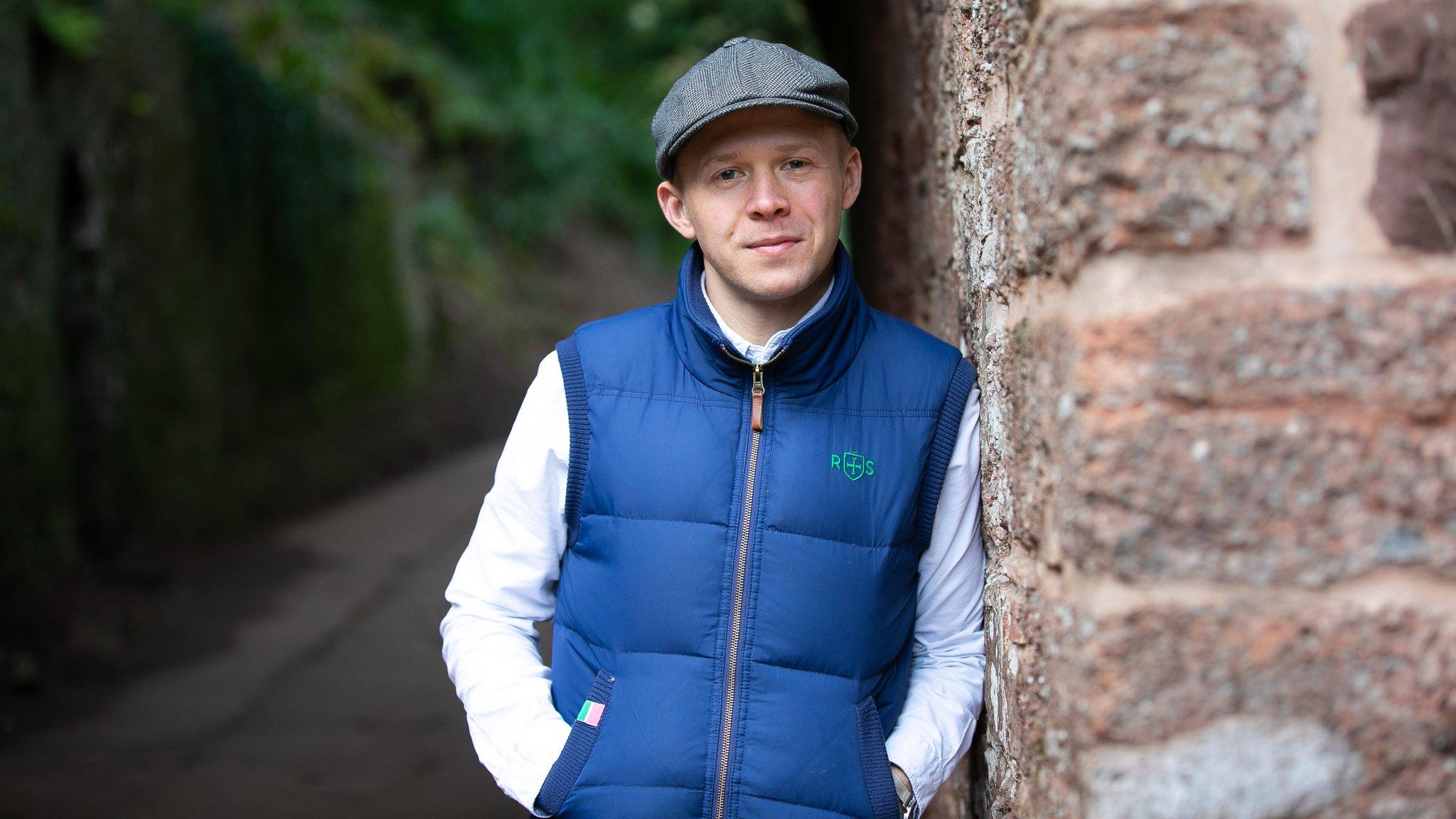
- Published3 May 2023
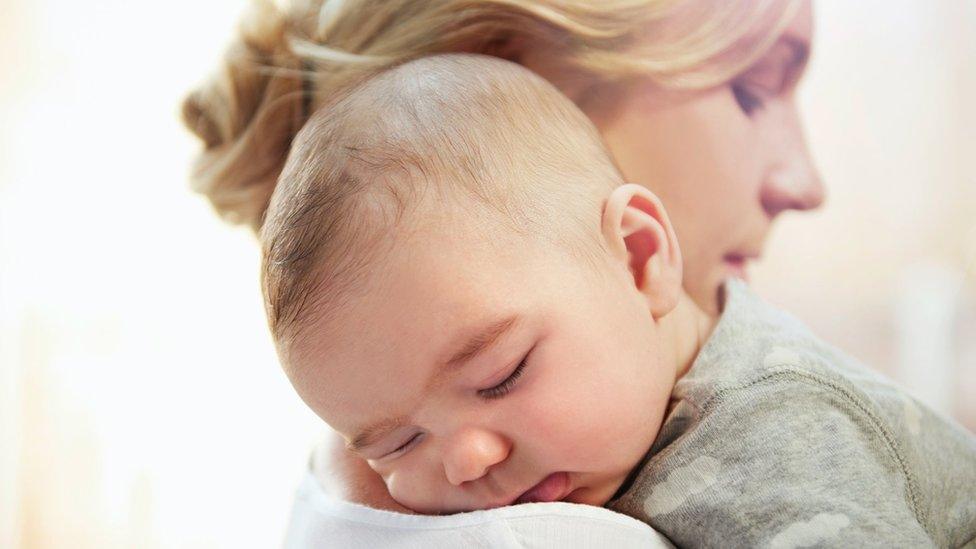
- Published15 January 2023
